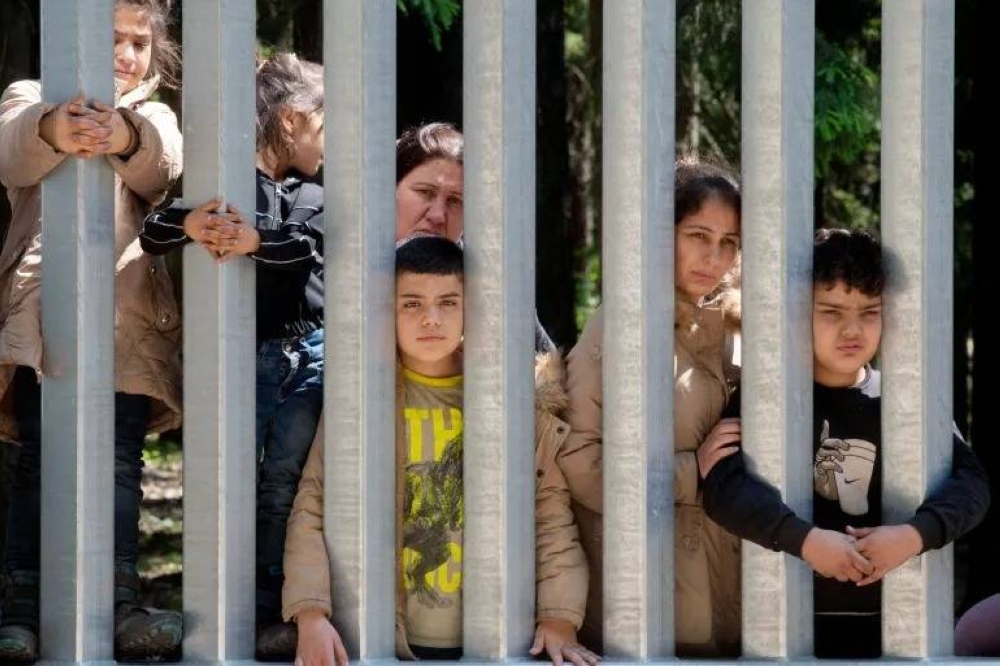Poland plans to temporarily suspend the right to asylum as part of a strategy to limit illegal migration amidst tensions with Belarus, which Warsaw accuses of channelling migrants across its border.
“One of the elements of the migration strategy will be the temporary territorial suspension of the right to asylum,” Prime Minister Donald Tusk said.
“I will demand this, I will demand recognition in Europe for this decision,” he told a congress held by his liberal Civic Coalition (KO) grouping, the largest member of Poland’s coalition government.
Tusk said the right to asylum was being used by Belarusian President Alexander Lukashenko, Russian President Vladimir Putin and by people smugglers in a way that goes against the essence of the right to asylum.
“We know perfectly well how (Belarusian President Alexander) Lukashenko, (Russian President Vladimir) Putin, migrant brokers and human traffickers use it,” he said of the asylum system.
“The way asylum rights are being used is completely contrary to the actual essence of the right to asylum,” said Tusk, a former European Council president who became premier after ousting Poland’s right-wing Law and Justice (PiS) party in elections last year. “We are not going to respect or apply any European idea that ... hinders our security. I’m thinking here of the (EU) migration pact.”
Poland, a North Atlantic Treaty Organisation (Nato) and European Union member, accuses Russia and Belarus of orchestrating a flood of asylum-seekers migrants in a “hybrid” attack to destabilise Europe, an accusation Lukashenko’s government denies.
Migration has been high on the agenda in Poland since 2021, when large numbers of people, mainly from the Middle East and Africa, started trying to illegally cross the border with Belarus in what Warsaw and the European Union said was a crisis orchestrated by Minsk and its ally Russia.
Russia and Belarus have denied responsibility.
In May, Poland announced that it would spend more than €2.3bn to reinforce its border with Belarus, the European Union’s eastern flank.
On Wednesday Poland and the Czech Republic called for tougher EU migration restrictions than those in the bloc’s new pact on migration and asylum, which is due to come into force in 2026.
Both countries have seen an influx of refugees from the war in Ukraine.
Tusk said he would present the migration strategy at a government meeting on October 15, the first anniversary of the election which brought the coalition he leads to power.
Since taking office in December 2023, Tusk has pursued a tough policy towards migration, a strategy which has won broad public support but which has dismayed activists who had hoped he would abandon the previous, nationalist administration’s approach.
Marysia Zlonkiewicz from Grupa Granica, a non-governmental organisation (NGO) that helps migrants at the border, said suspending the right to asylum was against the constitution and would push migrants into the hands of people smugglers.
“Prime Minister Tusk is violating the constitution that he promised to defend ... you cannot selectively exclude or deprive people of constitutional rights,” she said.
According to Amnesty International: “Seeking asylum is a human right. This means everyone should be allowed to enter another country to seek asylum.”
“The people are not the problem,” the rights group says on its website. “Rather, the causes that drive families and individuals to cross borders and the short-sighted and unrealistic ways that politicians respond to them are the problem.”

